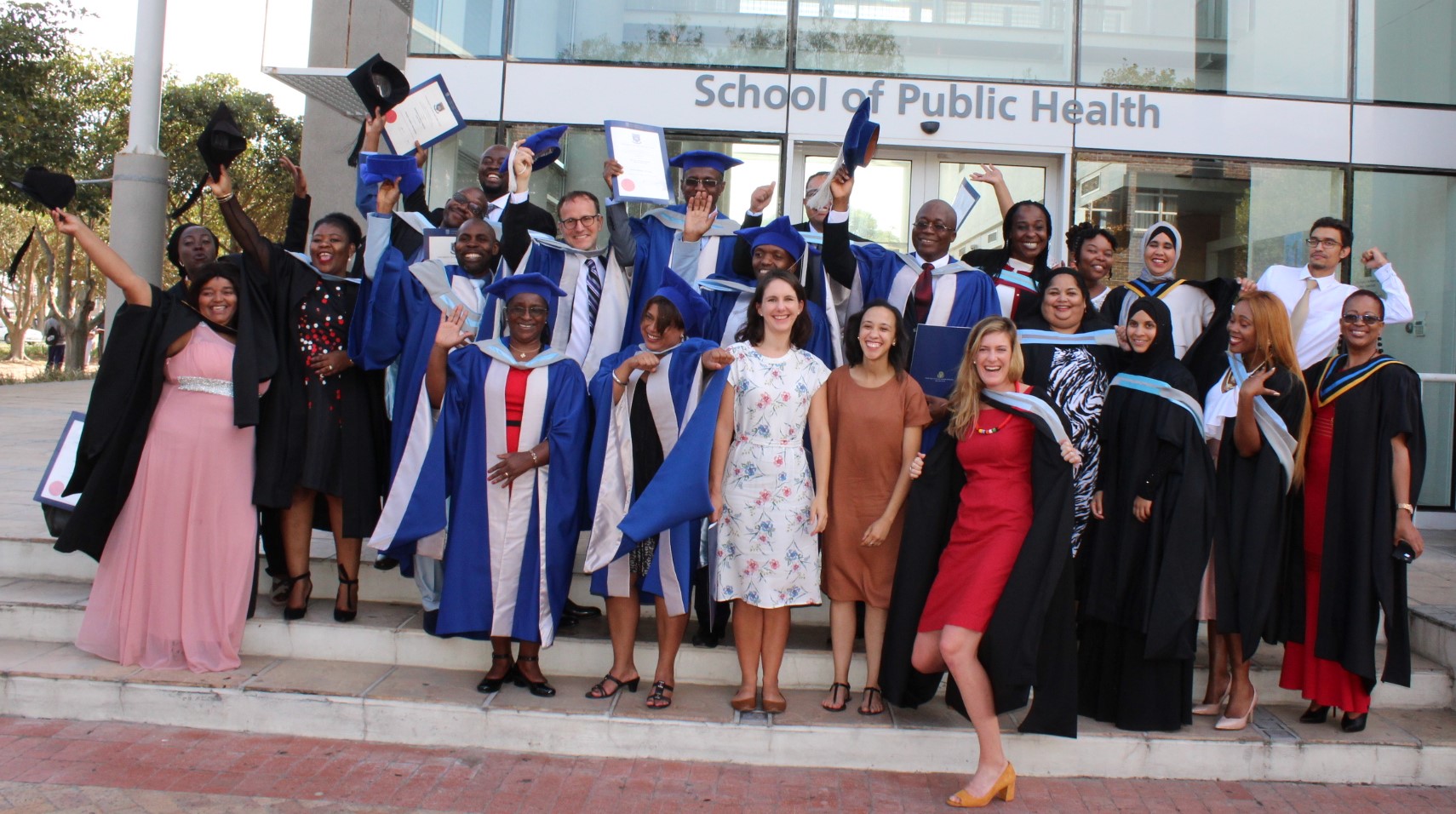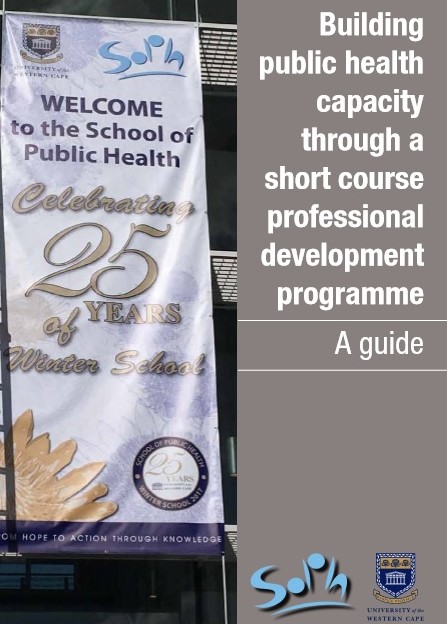
Congratulations to our graduates!
10 April 2018Project highlight: “Households in HIV care: an intervention to capitalize on the intermediate role of the household in community support for HIV care”
28 May 2018Building public health capacity through a short course professional development programme: A guide
Writing team: Prof Uta Lehmann and Ms Penny Morrell in consultation with Ms Marlene Petersen, Ms Bridget Basson, Ms Teresa de Lima, Ms Sidiqa Abbas, Ms Nikki Schaay and Dr Ruth Stern
Download Full Guide
Building public health capacity through a short course professional development programme. A guide
The School of Public Health (SOPH) at the University of the Western Cape (UWC) has been hosting continuing professional development short course programmes since its inception in 1992. Initially held twice a year, and now once a year (every June/July when university students are on vacation) we offer a three-week ‘Winter School’ programme comprising 18 to 25 courses, most a week long. Through this programme, between 250 and 500 health and health-related workers are exposed to the latest thinking in public health each year, enabling them to discuss and exchange ideas on improved planning and implementation of primary health care, district health systems and health equity. To date, more than 10,000 health care practitioners and managers from all over South Africa and many other African countries have attended at least one, and often many, short courses. Additionally a number of these courses are also used as teaching blocks for our Master of Public Health (MPH) degree. In this way our postgraduate students who are studying at a distance come to our SOPH and interact with staff and fellow students – as well as the practitioners attending short courses for professional development purposes. While we aim to cover our costs, our Winter School is not an income generator. Our primary purpose and rationale remains to offer professional development opportunities for role players in the public sector (be they managers, frontline providers or activists) at the lowest possible cost, contributing to the strengthening of primary health care, district health systems and health equity in the country and in Africa more generally.
In the past few years we have often been asked by colleagues in schools of public health and similar institutions, both in South Africa and in other parts of the continent, what it takes to set up and continue running such a large and sustained programme in an academic institution; why interest does not wane; and how we manage the focus, substance and logistics of this programme. This guide endeavours to respond to these questions – to assist those university colleagues who are considering the development of similar continuing professional development programmes in the health and related social sectors, both in South Africa and further afield.
How to use this guide
This guide comprises seven chapters:
- It provides a history of the programme through the eyes of some of colleagues who initiated, and were involved in, it from its inception.
- It opens the door to the ‘engine room’ and logistics of the programme, from advertising and marketing to organising teaching venues and materials, and managing accreditation.
- It offers insight into our approaches to choosing topics, developing curricula and how we work with adult learners.
- It identified the issues you might consider and the decisions you will need to take when offering a professional development programme through short courses.
The guide does not aim to provide a blueprint, however, as continuing education programmes inevitably have to fit into and respond to specific contexts. Rather it raises the key themes, questions and issues to consider when planning such a programme – enriched with reflections from staff and participants about our programme at the School of Public Health at UWC. While the guide focuses on public health, many of the themes are generic to continuing professional development programmes in the public sector and can be used and/or adapted for other fields. When developing your own programmes using this guide, we ask that you acknowledge this original source and that you share your adaptations with us in the interest of refining and developing this as a useful resource for all.
Feedback about your own experiences can be sent to soph-comm@uwc.ac.za.

